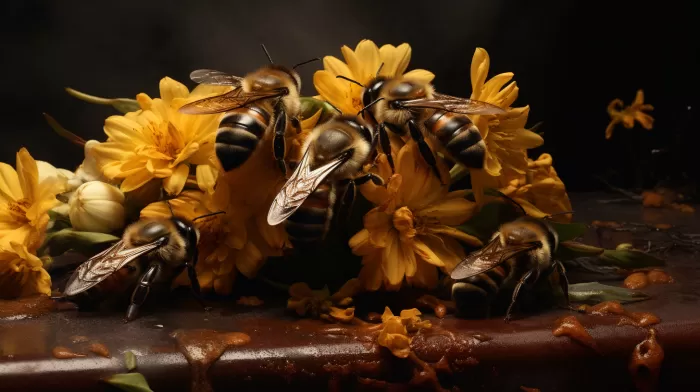A puzzling epidemic is now spreading across the U.S. and other countries, threatening to create malnutrition for millions of people. The consequences could be severe, as this epidemic is killing off important insects. In recent years, pollinating insects like bees have been getting sick, dying, and disappearing around the world. The continuation of this die-off puts food crops that depend on these insects in grave danger everywhere.
Researchers at the University of Vermont and Harvard University conducted a study that shows the food and nutrients consumed by people in developing countries are in immediate serious danger if pollinating insects like bees continue to decline. The alarming numbers for vitamin A deficiencies are particularly concerning, as they can lead to blindness and increase death rates for diseases like malaria.
Pollinator Decline Affects More Than Bees
Alarmingly, the problem is not just affecting bees. Researchers in numerous countries have recorded concerning disappearances of many pollinating insects, putting the global food supply at risk. Other studies show that pollinators help plants produce about 40 percent of all the nutrients consumed by humans. Thus, it is crucial to address this issue immediately.
For instance, in Mozambique, there are areas where mothers and their children are already on the edge of micronutrient deficiency. If many pollinators become extinct, up to 56 percent of that area’s population will suffer a disastrous lack of vitamin A. Pollinator declines can have severe repercussions on human health, as demonstrated by this study — the first to quantify the potential human health impacts of animal pollinator declines.
Conservation: An Investment in Public Health
Ecosystem damage can have dire effects on human health, and conservation can be thought of as an investment in public health. To protect the human population and ensure food security, various measures must be taken to combat the decline of these pollinating insects.
Supporting Pollinator-Friendly Policies
It’s important to support policies and initiatives that protect pollinators like bees. This could include backing legislation that reduces the use of harmful pesticides and promotes the planting of wildflowers in cities, providing habitat and food sources for bees and other pollinators.
Creating Habitats for Pollinating Insects
Planting pollinator-friendly plants and flowers in public spaces and private gardens can help feed pollinators, promote their reproduction, and increase their populations. These plants should ideally be native to the area and pesticide-free to ensure they support the health and wellbeing of pollinating insects.
Spread Awareness About Pollinator Decline
Spreading the word about the importance of pollinators like bees and the current crisis they face is essential. Educating the public about bees’ vital role in food production can help inspire individuals to create pollinator habitats and support policies that protect them.
The Importance of the Honeybee Population
Among the various pollinating insects, honeybees are some of the most important. They are responsible for pollinating a significant portion of the fruits, vegetables, and nuts that humans consume worldwide. As a result, the declining honeybee population is a major concern for global food security.
Protecting honeybees not only ensures the production of various foods, but it also provides economic benefits. Many industries are heavily dependent on honeybees for pollination, as they play a crucial role in the production of various crops. In the United States, for example, almonds rely heavily on honeybee pollination. Without honeybees, the almond industry would face significant losses.
The Future of Nutrition and Pollinators
Research has made it abundantly clear that pollinators like bees are essential to the health and wellbeing of people around the globe. Taking action to protect these insects and secure their future is not only crucial for the environment but also for the stability of the worldwide food supply.
It is necessary to push forward with initiatives and research that support pollinators, such as advocating for pollinator-friendly policies and creating habitats that nurture them. By taking the time to educate the public and demand change, we can ensure a future where pollinators and humans can coexist harmoniously, resulting in a mutually beneficial relationship and securing the global food supply for generations to come.



